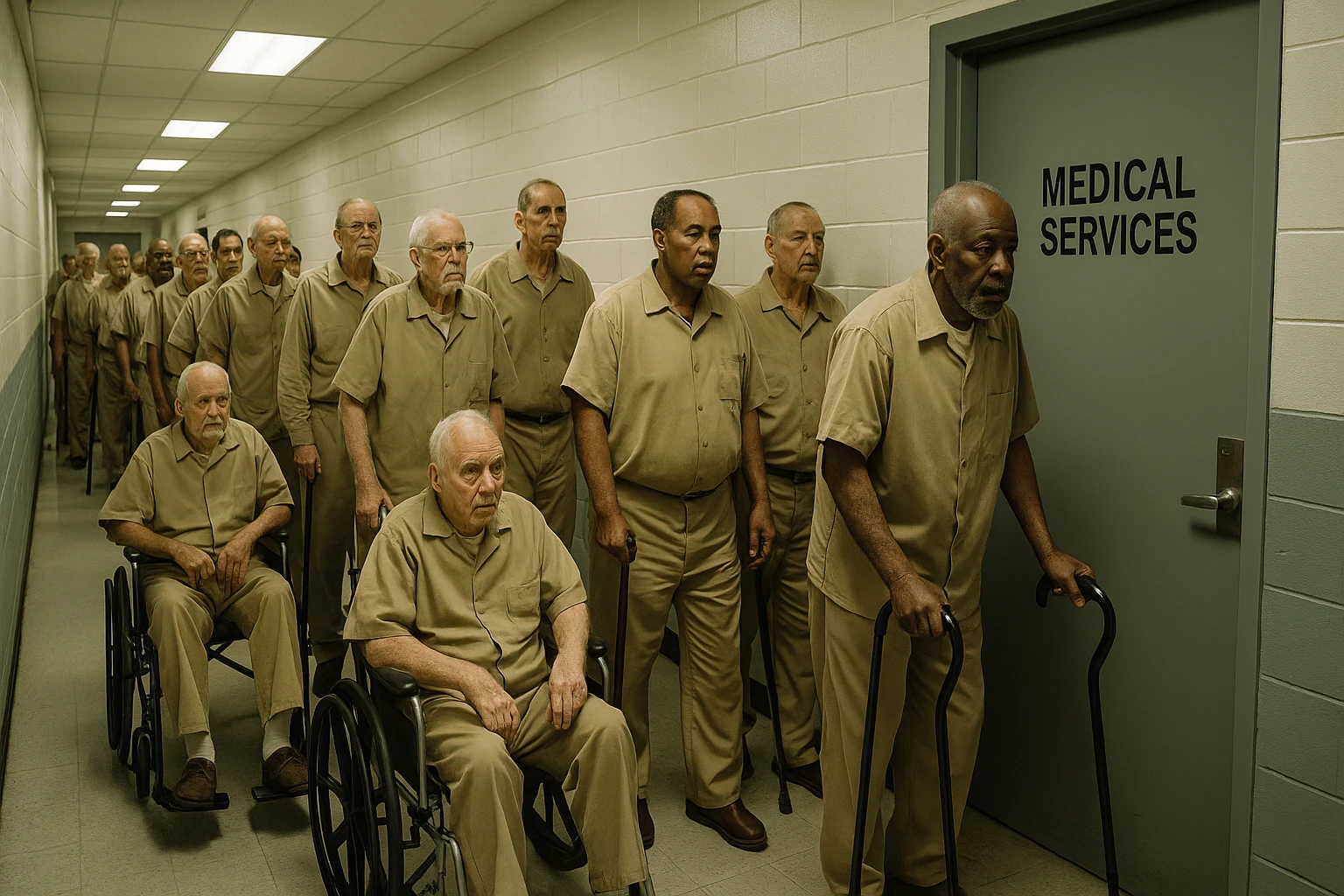Healthcare Neglect in Prisons

- Details
- Category: Healthcare Neglect in Prisons
The state of healthcare in the Federal Bureau of Prisons (BOP) is nothing short of a catastrophe. Inmates are subjected to poor nutrition, rampant drug addiction, and substandard medical care. Despite BOP policy stating that healthcare within the system should be equivalent to that of the general community, the reality is starkly different—many household pets in America receive better medical treatment than incarcerated individuals.

- Details
- Category: Healthcare Neglect in Prisons
According to official Federal Bureau of Prisons (BOP) policy, incarcerated individuals are entitled to the same standard of medical care available in the surrounding community. On paper, this sounds equitable. In practice, however, BOP inmates have reported that access to that care is obstructed by chronic understaffing, poor resource allocation, and a system where medical professionals are frequently reassigned to non-medical roles, such as security and custody duties.

- Details
- Category: Healthcare Neglect in Prisons
Few aspects of federal prison life impact inmates as significantly as the commissary. This small store inside each facility is more than just a place to buy snacks—it’s the financial engine that funds all inmate amenities. The Bureau of Prisons (BOP) commissary system generates hundreds of thousands of dollars per month per facility, fueling the Inmate Trust Fund. This fund covers everything from recreational programs and hygiene products to clothing and even the salaries of inmates and staff who run laundry and commissary services. Taxpayers do not contribute a single dollar to these inmate amenities.

- Details
- Category: Healthcare Neglect in Prisons
In the past, the Federal Bureau of Prisons (BOP) recognized the importance of physical fitness, providing inmates with access to exercise equipment, including free weights. The rationale was simple: healthier inmates equate to reduced healthcare costs, which, in turn, lessens the financial burden on taxpayers. However, at some point, the policy shifted based on an unfounded fear—that inmates were using strength training to become more physically threatening to staff.

- Details
- Category: Healthcare Neglect in Prisons
In the 1990s, the Federal Bureau of Prisons (BOP) sold cigarettes and other tobacco products to inmates. However, in the early 2000s, aligning with broader public health initiatives, the agency banned smoking in federal prisons. Given that taxpayers ultimately bear the cost of cancer treatment for inmates, the decision was both logical and financially sound. While some prisoners resisted the change, many welcomed the move toward a smoke-free environment.